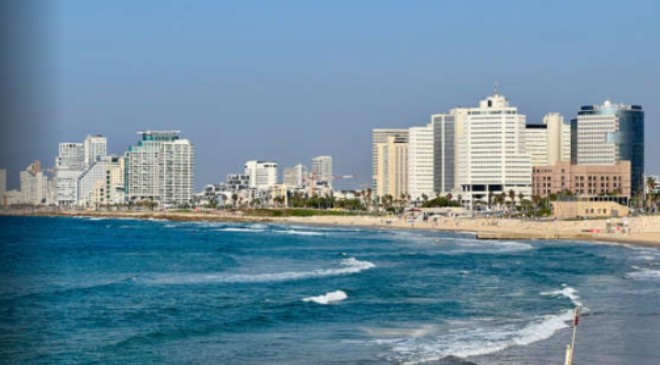MSN has partnered with The Points Guy for our coverage of credit card products. MSN and The Points Guy may receive a commission from card issuers.
When it comes to international travel during COVID-19, you need a backup plan — and a backup for your backup plan. It’s not just us here at TPG saying this, either. The U.S. Department of State says you need one, too.
As the omicron variant spreads worldwide, the State Department noted that international travelers might face “unexpected challenges” related to the COVID-19 pandemic. Americans, the agency said, should have a contingency plan for instances such as having to remain in a foreign country for an extended period.
“U.S. citizens who choose to travel internationally should be aware that they may face unexpected challenges related to COVID-19 as they attempt to return to the United States or attempt to travel from one overseas location to another,” the agency wrote on its website on Dec. 30.
But when it comes time to actually assemble a contingency plan, what should be in it? Here’s what you need to consider before your next international trip.
In This Post
Plan ahead for everything, including border closures
Although many countries have reopened, others have closed once again, changed entry and exit rules, or added restrictions on movement without warning.
For example, while the Netherlands didn’t completely shut down for travel, it announced a strict lockdown a week before Christmas to contain a significant surge of the new COVID-19 omicron variant. All nonessential stores, bars and restaurants are closed until at least Jan. 14.
On the more extreme side of things, a country might also abruptly close to noncitizen international travelers while you’re there.
That was the case with Israel, which announced it would resume its ban on international tourists in late November. The new travel rules went into effect the next day, meaning non-Israeli citizens had less than one day to figure out how to get home. (Israel is mulling reopening to citizens of certain countries, but U.S. citizens are still barred from entry.)
While it may seem excessive, it’s good to have an exit strategy in place should you need to leave a destination quickly.
TPG’s director of travel content, Summer Hull, recalled having to act quickly when the U.K. reentry rules changed in early December. Hull said she had to consider the possibility of further challenges getting back to the U.S., all while dealing with an eight-hour time difference.
“When we left for Europe, I’d never heard the word omicron, but while we were in London and then in the Finnish Arctic, things started to happen quickly,” Hull said.
“While we didn’t overreact, we did stay more closely attuned to the news and even had a friend on standby during U.S. waking hours in case the U.S. rules changed dramatically, and he could then rebook our flights home for the next day while we were sleeping,” she said.
“Ultimately, that wasn’t needed, so the only alteration we made was to spend our final night back in the U.K. at a Heathrow Airport hotel instead of heading back into the heart of London. This allowed us to be an arm’s distance from some of the quickest and most available testing sites, just in case.”
Consider travel insurance that covers COVID-19 related costs

Travelers should also have a clear plan if they test positive while abroad. The State Department notes that travelers may have to remain in a foreign country longer than initially planned, “which will be at their own expense.”
The State Department recommends Americans purchase international travel insurance with coverage for coronavirus-related trip cancellation and medical benefits. This kind of insurance would cover potentially pricey expenses such as testing and hotel accommodations if you had to quarantine. One easy way to find insurance that covers COVID-19 costs is by using insurance marketplace websites such as InsureMyTrip or Squaremouth.
“In general, Medicare and Medicaid do not cover overseas medical costs,” the agency wrote on its website, a reminder that traveling during the pandemic can get expensive quickly if you aren’t prepared.
Many standard travel insurance plans do not cover COVID-19 and related disruptions (such as costs associated with quarantine or testing), nor are they covered by the trip cancellation and interruption insurance offered by many credit cards.
“Typically, cards that come with travel insurance won’t cover COVID-19 since it’s a pandemic or otherwise known event, but it’s always best practice to read the benefits guide to ensure that this isn’t an exclusion,” TPG credit cards writer Stella Shon said. “In that case, most travelers should buy additional travel insurance that doesn’t exclude COVID-19.”
Travelers should also know exactly where they would be required to quarantine if they get a positive COVID-19 test, either on arrival or while they’re in the country.
A positive test can mean simply hunkering down in your hotel room or Airbnb with Netflix and a bowl of soup for 10 days in some destinations. But in others, such as Hong Kong, travelers who test positive on arrival are transferred to hospitals for isolation, and their close contacts are sent to quarantine.
Before leaving home, travelers should double-check a specific country’s quarantine rules to see if quarantine is restricted to certain hotels or if you’ll be forced to stay at a facility.
Also, note that most independent travel medical insurances do not usually include emergency evacuation coverage, meaning you would be stuck quarantining in a foreign country.
If you want to ensure you can be transported to your home base to quarantine should you test positive, consider purchasing a COVID-19 travel insurance membership plan from Covac Global, the only repatriation company with coverage that includes transporting members home upon testing positive without any hospitalization. Just be aware it’s pricey, as plans start at $175.
Think about your flights and book with flexibility

Travelers should also have a sense of the shortest route home and any alternate direct flights, should you unexpectedly need to change your flight.
“Always look up other flights that can get you home in case the first options get canceled or changing rules mean you can’t connect in the city you thought you were going to,” says TPG’s director of travel news and features content, Andrea Rotondo.
Americans traveling internationally in the coming days may also want to think about flying direct and avoiding connections if possible. In recent weeks, thousands of flights into, out of or within the U.S. have been canceled due to staffing issues linked to the omicron variant and as a winter storm slammed into the mid-Atlantic.
Book with flexible options, says booking platform Hopper, which allows travelers to add a “cancel or change for any reason” insurance policy upfront and then cancel or change their plans down the line, up to 24 hours before departure.
“When traveling abroad, we recommend booking plans with flexibility,” Hopper economist Adit Damodaran told TPG via email.
Hopper also offers a flight rebooking guarantee to help travelers avoid any hiccups with traveling internationally, whether due to weather, flight changes or delays.
“If your trip is delayed, your airline cancels your flight or you miss your connecting flight, you can instantly rebook the next flight to their destination directly in the Hopper app from the airport, no matter the airline, at no additional cost,” said Damodaran.
“Add in a buffer to your travel dates — try to bake some flexibility into your schedule if you can, especially when traveling abroad,” Damodaran continued. “It’s always a good idea to buffer an extra day or so, in case there are disruptions to your trip to ensure you can make it to your destination on time.”
Know the COVID-19 rules of the country you’re visiting

Entry and exit rules as they pertain to COVID-19 vary by country. In addition to reading our country reopening guide, do as much research as you can in advance to ensure you satisfy all requirements related to pre-arrival, arrival and departure measures.
“Make sure you’re familiar with the travel guidelines in place and prepared to meet the COVID-19 policies at your destination as well as the requirements to return to your home destination in advance of any international travel,” said Damodaran.
“For instance, make sure you’re traveling with proof of vaccination, COVID-19 test results and have a clear understanding of what will be needed for your flight, hotel stay and at the destination when you arrive – particularly if you’re planning to travel internationally as each country’s guidelines differ.”
Also, check to make sure that you have downloaded any specific apps that the country you are headed to may require, whether for contact tracing purposes or for uploading COVID-19-related documents.
Diversify your points and miles

TPG credit card editor Juan Ruiz suggests travelers have an array of airline miles and transferable points and miles currency in their travel arsenal.
“That way, you can redeem for backup flights if your original or even first backup flight goes astray,” Ruiz says.
TPG also always suggests booking with miles for international travel as it will usually provide more flexibility around changing or canceling flights. Also, make it a habit to know the other airlines operating the routes if you need to book last-minute on another airline.
“The first thing I do when I’m traveling is seeing who else flies where I’m going just in case something goes sideways,” said TPG senior news editor Clint Henderson. He said, “I keep a stash of various airline and hotel points in my accounts as backup, so if I get stuck somewhere, I have other options to get home or stay overnight.”
Henderson also suggests keeping an eye on Twitter, where he says he usually first sees when countries, cities or governments change the rules.
Bottom line
Having a plan A and B is no longer sufficient — you really need a plan C and D.
“You need all the backup plans to leave the country right now,” says TPG’s Summer Hull. “You need backup plans for testing, quarantining and getting home ASAP if rules start going bananas.”
Additional reporting by Victoria M. Walker
Featured photo by Iryna Veklich/Getty Images.









































